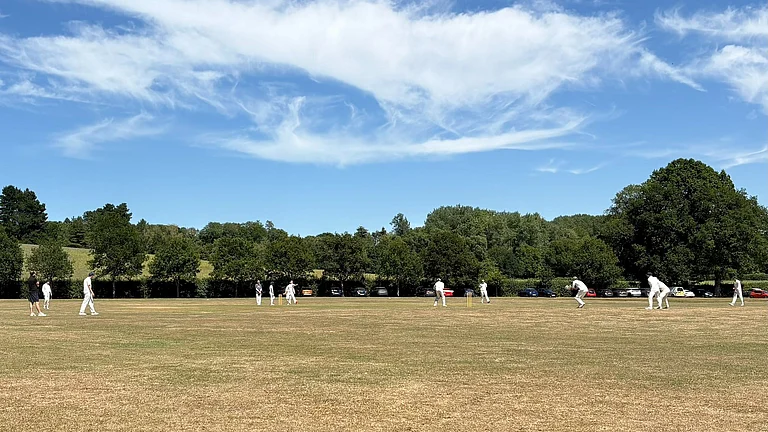The African Union has been granted permanent member status in the Group of 20 top world economies, PM Narendra Modi said on Saturday, as his drive to maximise representation of the Global South as the host of G-20, 2023 summit gains impetus. The announcement was received with an exonerated cheer and strong support, making AU-a continental body of 55 member states, the second regional bloc to become a permanent member after the European Union.
The announcement seemed refreshing amidst burgeoning global rifts and absence of crucial members, which had temporarily threatened the success of reaching a consensus on principal issues. Indian officials said that the announcement would also “leave a lasting imprint” of the feats achieved by the Indian Presidency in the direction of inclusion and integration of the Global South on a bigger platform.
“In keeping with the sentiment of sabka saath (with everyone), India had proposed that the African Union should be given permanent membership of the G20. I believe we all are in agreement on this proposal. With your agreement (he banged the gavel thrice)," Modi said.
PM Modi shook hands with Comoros President Azali Assoumani, current AU chair, and welcomed him with a warm embrace, before inviting him to take a seat at the table of G20 leaders as a permanent member. “I invite the representative of the African Union to take his place as a permanent member of the G20,” Modi said.
The African Union’s previous designation was "invited international organisation". Addressing the needs of the developing world was highlighted as a pressing issue to be tabled and deliberated upon, time and again, by India. The suggestion to include AU in the Group of 20 nations was proposed by PM Modi in June.
US President Joe Biden had also called for AU’s permanent membership, last year at G20, said it’s been “ a long time in coming.”
While South Africa was the bloc’s only G20 member, the African Union has advocated for complete membership for seven years, said Ebba Kalondo, their spokesperson.
AU and its membership will prove crucial to discussions as Africa poses central to global issues like food security, migration and climate change.
How did India manage to achieve AU’s integration?
India has over the years, established its position and resiliently advocated for issues and ambitions pertaining to the Global South, particularly the African continent. PM Modi took the lead in June, and wrote to the leaders if the G20 nations, encouraging them to grant full membership to the African Union, as requested by them, at the G20 summit in New Delhi.
The idea seems to have developed after the ‘Voice of the Global South’ summit in January, early this year, which witnessed the participation of most of the African continent’s 55 countries. It was again deliberated upon in Addis Ababa in Ethiopia, which houses the headquarters of the African Union.
The argument made by many African leaders was that the African Union deserves to be credited with a similar representation as Europe- which is represented by five countries as well as the European Union.
The proposal, timely, paved its way into the official draft communique for the summit, and this occurred at the third G20 Sherpas meeting in Hampi, Karnataka, in July.
PM Modi, in an exclusive interview with PTI earlier this month, stated that Africa is “top priority” for India and that it will work for the inclusion of those in global affairs who felt unheard.
At the Sherpa discussions, preceding the summit, membership of the AU also appeared to be a point of agreement that was backed by both Russian and Chinese officials on Thursday. “China is the first country that explicitly expressed its support for the African Union’s membership in the G-20”. Mao Ning, Chinese Foreign Ministry Spokesperson told reporters. “At the China-Africa Leaders’ Dialogue last month, President Xi Jinping again stressed that China will work actively to support the AU’s full membership in the G-20. China and the AU are important partners in building a high-level China-Africa community with a shared future and safeguarding international fairness and justice. China supports the AU in playing a bigger role in global governance,” Ms. Mao said.
The watershed moment captures New Delhi’s engagement with Africa. Indian ministers had also visited all African countries, as part of the Africa Outreach Initiative. PM Modi has himself visited 10 countries in Africa in the last nine years. India’s outreach to Africa, however, had begun in 2008.
Manish Dabhade, Assistant Professor, Centre for International Politics, Organisation & Disarmament, Jawaharlal Nehru University (JNU) told Outlook that the inclusion of the AU in the G-20 during India's presidency is a display of Indian leadership of the developing world, which has emerged as a key focus of the Indian foreign policy lately.
"Leading the developing world is key to Indian foreign policy and interests. The inclusion of AU in G20 in India's presidency and other initiatives of India in Africa and elsewhere also counter China's engagement in Africa and developing countries everywhere. China has an active presence in Africa with Belt and Road Initiative (BRI) and Indian initiatives and G20 membership provide African an alternative and give the region a voice at the world stage that China does not give. That way, the AU membership of G20 is important and in line with Indian engagement with the Global South," said Dabhade, also the founder of the think tank India Futures.
With the latest development India has implicitly been ordained as a Messiah of developing and underdeveloped countries. This can also be viewed in tandem with India’s aspiration for permanent membership of the UNSC, as Delhi remains keen to gain 55 votes from Africa.
How does the African Union contribute to G20?
The AU, exercising its newly acquired G20 membership can now represent a continent- that houses the world’s largest free trade area, is extremely rich in resources required to combat climate change, which, like other developing countries, it contributes to the least but is affected by the most.
The African Continent is home to 60% of the world’s renewable energy assets and more than 30% of the minerals important to renewable and low-carbon technologies.
According to a recent UN Report on Africa’s economic development, the Democratic Republic of Congo alone houses almost half of the world’s cobalt- a metal essential for lithium-ion batteries.
Tired of watching outsiders exploit the continent’s resources for processing and profits, African leaders vouched for industrial development closer to home that would prove beneficial to their economies.
Kenyan President William Ruto called for fairer treatment by financial institutions, the delivery of rich countries’ long promised 100 billion dollars in climate financing for developing nations and a global tax on fossil fuels, at the first Africa Climate Summit this week in Nairobi.
However, finding a common position among the AU’s member states, vacillating between economic potency of Nigeria and Ethiopia and economic depravity of other nations, can pose as a potential challenge- while the AU tackles with its response to coups and other crises.
Moreover, the body’s rotating chairmanship, which changes annually also hinders consistency but Africa “will need to speak with one voice if it hopes to influence G20 decision-making,” wrote Ibrahim Assane Mayaki, a former prime minister of Niger, and Daouda Sembene, a former executive director of the International Monetary Fund, in Project Syndicate this year.
And African leaders have rightfully shown their willingness to take collective action- as seen during the Covid-19 pandemic, when they united to criticise the stacking up of vaccines by rich countries. They also came together to then pursue bulk purchases of supplies for the continent.
Africa now holds high stakes as a G20 member and its demands cannot be wilfully ignored anymore.
Impact on Africa
The AU comprising of 55 member states, have long pushed for significant roles in the global bodies, including the United Nations Security Council. They are also driving for reforms to be made in the global financing system which forces African countries to pay more than others to borrow, further deepening their debt.
Africa is rising as a site of interest and potential among the new generation of global powers, beyond the US and former European colonisers. China remains Africa’s largest trading partners and also one of its largest lenders. Russia is the country’s leading arms provider. Gulf nations have become the continent’s biggest investors. Turkey’s largest overseas military base and embassy is stationed in Somalia, while Israel and Iran increase their outreach in search of partners.
Permanent G20 membership signals the rise of a continent- otherwise framed as a victim of war, extremism, hunger and disaster. The membership will recognise the continent with a young population of 1.3 billion, set to double by 2050 and make up a quarter of the planet’s people, as a global power.

























